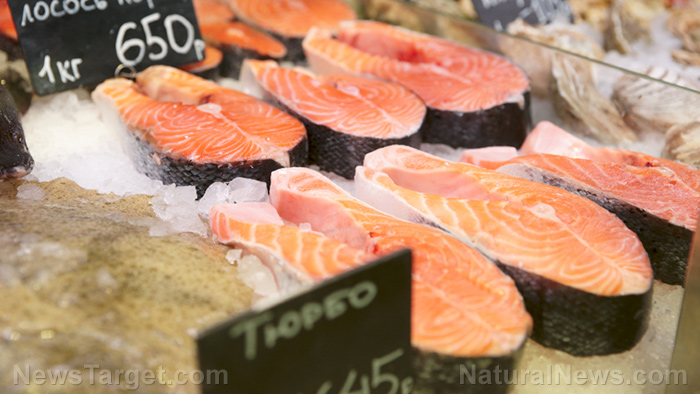
Advertisement
Stroke is defined as a sudden disruption in the blood supply of the brain. This is usually caused by blockage of the arteries or bleeding due to a blood vessel rupturing.
Statistics show that every year, five million people die of stroke. This accounts to about 10% of the total number of deaths worldwide. Because of this, stroke is considered one of the leading causes of mortality today.
Fortunately, stroke is a lifestyle disease — just like heart disease and obesity, you can prevent stroke by adopting necessary (and healthy) lifestyle changes. Besides exercising regularly, which can lower your risk of stroke considerably, you can also add these nine foods to your diet to avoid the potentially lethal consequences of a stroke.
9 Foods that help keep stroke at bay
According to Swedish researchers, the Mediterranean diet is the best diet to adopt if you want to cut your risk of stroke. The Mediterranean diet includes less meat and plenty of plant-based foods like vegetables and fruits, legumes, nuts, seeds and whole grains. Based on the results of their study, this diet can also benefit your heart by lowering your risk of heart attack and heart failure.
To experience these benefits, here are nine foods that you should add to your diet.
Fish
The Harvard Center for Risk Analysis obtained the opinion of an expert panel on the relationship between the risk of stroke and consumption of fish. The conclusion was that eating fish — any fish at all — reduces your risk of stroke by 12%. This percentage goes down by about 2% for every additional serving of fish you consume per week.
Another Harvard study offers guidelines on how to cook your fish. People who eat baked or broiled fish one to four times a week are 27% less likely to have a stroke. Those who fry their fish or eat fish sandwiches more than once a week have a 44% greater chance of having a stroke compared to the previous group.
Pumpkin seeds
Spinach, beet greens and pumpkin seeds are excellent sources of magnesium. This mineral has been linked to a reduction in the risk of stroke. This was proven by another Harvard study that followed female participants for 30 years and found that those who ate the most magnesium had 13% lower risk of having a stroke. Every 100 mg of magnesium further reduced risks by 13%.
A different study in men obtained almost similar results. Those who got the most magnesium from food reduced their risk of stroke by 13% compared to individuals who got the least. Those who obtained magnesium from supplements reduced risks by up to 26%, while those who combined diet and supplements got a reduction of 17%.
Fruits and vegetables
A Swedish inquiry found that eating fruits and vegetables can lower the risk of stroke by 13%. Consumption of fruits reduced the risk of stroke by 35% in men and 25% in women. In a comparison between fruits and vegetables, it was revealed that eating vegetables reduced the risk of stroke by 23% compared to just 14% from eating fruits. However, eating an additional 200 g of fruits reduced risks further by 32% compared to just 11% from eating more vegetables.
Tea
A Chinese study discovered that drinking tea regularly can cut your risk of stroke by 39%. Those who have always preferred tea as beverage cut their risk by 60%.
Olive oil
Olive oil is known for its benefits to the cardiovascular system. French researchers published findings in Neurology stating that people older than 65 who used olive oil intensively reduced their risk of stroke by 41%. Most of the participants in the study used extra virgin olive oil, which contains more anti-inflammatory antioxidants than regular olive oil.
Soy
A study discovered that participants who ate the most soy had 77% less risk of having a stroke compared to those who ate the least. This was supported by a Japanese study that revealed a 65% lower risk among women who ate the most soy compared to those who ate the least.
Chocolate
A meta-analysis by researchers from Cambridge University found that eating chocolate lowers your risk of stroke by 29%. In Germany, it was found that those who ate 6 g of chocolate per day had 39% lower risk compared to those who did not eat much chocolate.
Coffee
Nine studies in Korea pointed out that drinking four or more cups of coffee per day can reduce the total risk of stroke by 17%. This is compared to non-coffee drinkers.
Wine
Researchers conducting the Aortic Plaques and Risk of Ischemic Stroke (APRIS) study found that alcohol consumption was inversely proportional to atherosclerotic plaque in the aorta, which means a lower risk of stroke. They believe that this explains why moderate drinkers have a lower risk of developing ischemic stroke.
Sources:
Advertisements







